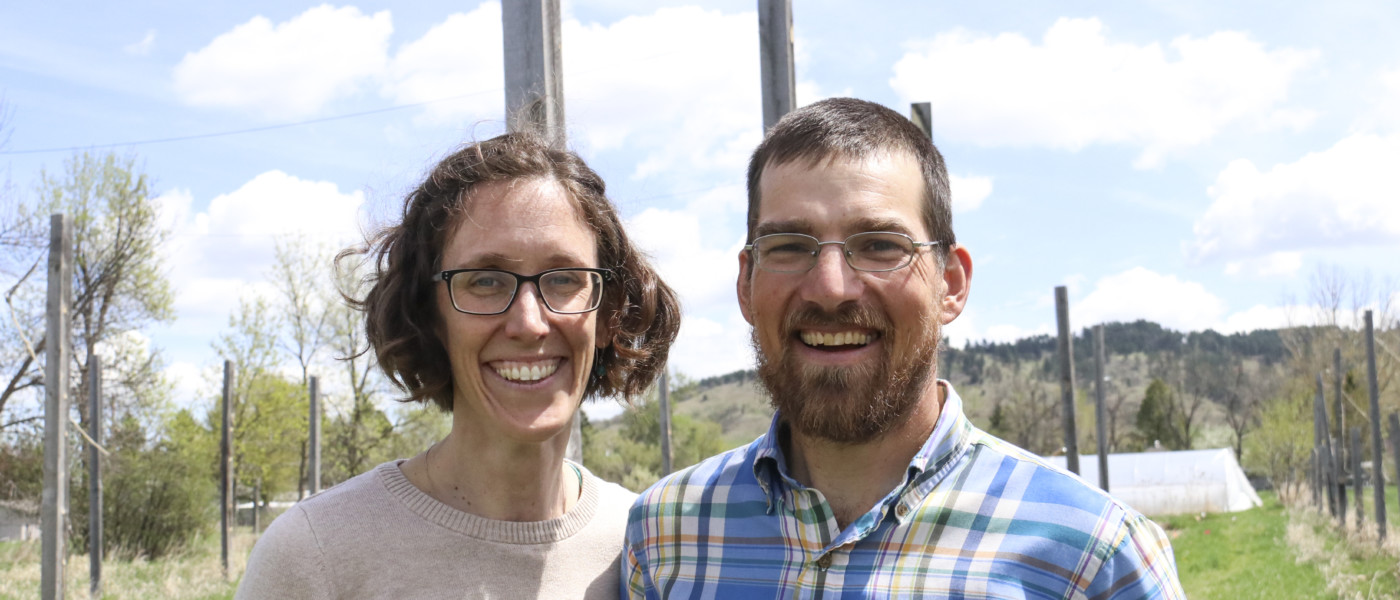
Homegrown Stories is a storytelling project from our partners at Western Organization of Resource Councils (WORC). It celebrates the hardworking people in our food system trying to do things right. The people of these stories are hard at work to create diverse, wholesome, regional food systems in our communities. They feature people working hard to keep the land healthy and their communities nourished.
WORC gave us permission to repost these farmers’ Homegrown Stories here in an effort to change the narrative of agriculture in America.
Cycle Farm: Jeremy Smith and Trish Jenkins
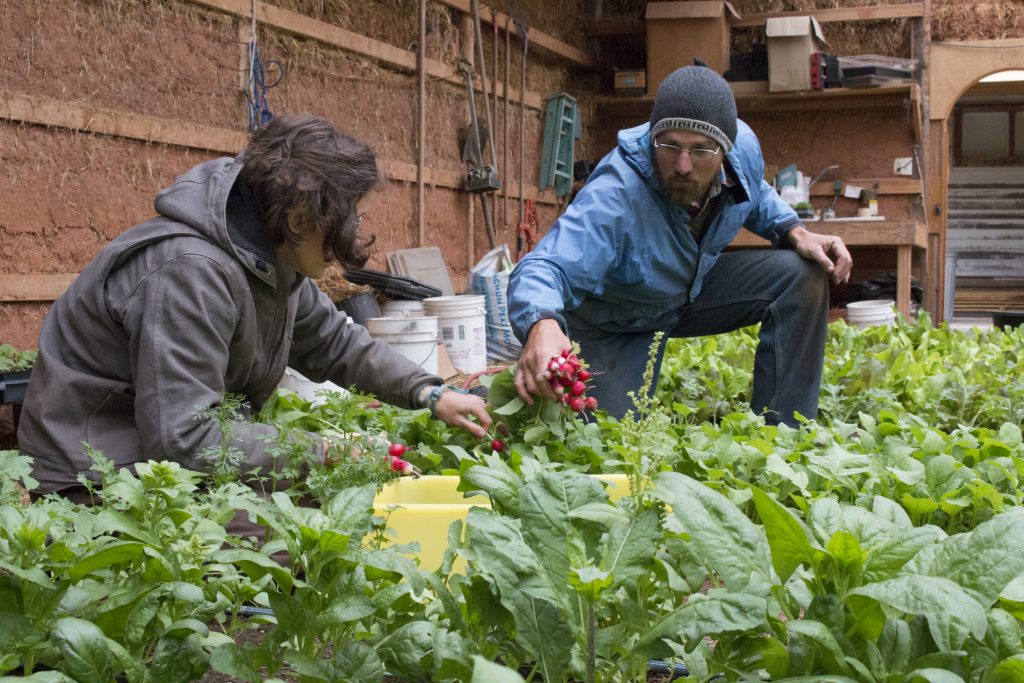
Trish Jenkins and Jeremy Smith harvest radishes
New farmers Jeremy Smith and Trish Jenkins can’t help but laugh when they reflect on what it took to get their farm started 7 years ago.
“We hung posters all over town inviting people to come to our home and talk about farming with us,” said Jeremy. “We held an interest meeting right here in our living room talking to people about what to grow and where to sell. We started planting immediately after that.”
Today, 7 years later, Jeremy Smith and Trish Jenkins run Cycle Farm in Spearfish, South Dakota. They grow mixed vegetables for a Community Supported Agriculture operation, a few restaurants, a natural food store and their on-farm farm stand.
For years, Jeremy and Trish knew they wanted to be a part of their local food system and do so sustainably despite not growing up in agriculture. Their journey into agriculture was a gradual process.
“We became more and more involved in our local food system as conscious eaters,” said Jeremy.
Through that engagement in their local food system in New Mexico, Jeremy and Trish started meeting farmers and volunteering on different farms and gardens. Trish started working for a small, privately-owned environmental firm analyzing the water quality on dairy confined animal feeding operations, which furthered her passion for small-scale and environmentally conscious agriculture. After attending the Quivira Coalition Conference in 2010, a conference that explored the potential of agriculture to help mitigate climate change through building healthy soil, resilient land and biodiversity, Jeremy and Trish felt inspired for a career in agriculture. They realized there was a better way to grow food and that they could be part of the solution.
Jeremy and Trish moved to Spearfish, South Dakota, in 2012. Jeremy grew up in Spearfish and recognized a need for more wholesome, local food in the community.
“We wanted to live and grow in a small community where we could bike everywhere and have good relations with customers and neighbors,” said Trish.
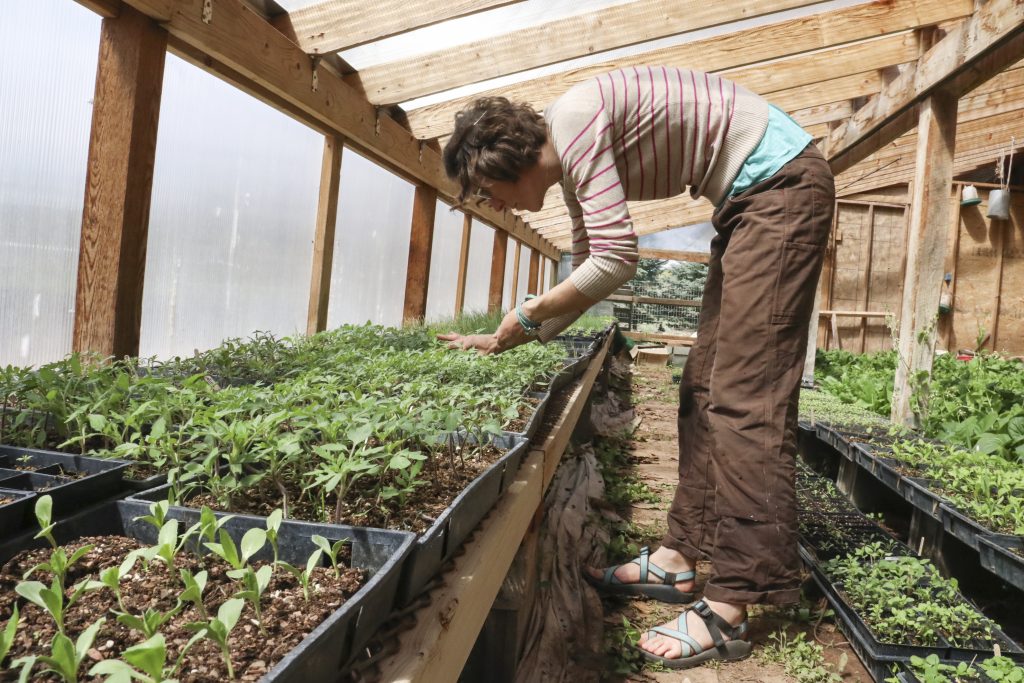
Trish tends to greens
Spearfish seemed like the perfect fit.
The mission behind Cycle Farm is to provide healthy food locally with little environmental impact. Their mission is tied to the name of the farm. Cycle Farm delivers all of its products by bicycle. “That’s where the name ‘cycle’ in Cycle Farm partly comes from,” said Trish. “‘Cycle’ for ‘bicycle,’ and also for the cycles of the seasons and growing,” said Jeremy.
Since starting Cycle Farm, Jeremy and Trish have learned a lot about Spearfish customers and the local food system.
“One of the benefits of growing for a local market and direct-to-consumer is we know our customers and we see them every week. That immediate feedback of, ‘this is amazing’ or ‘I don’t like beets’ is really helpful for us, both logistically, with what we’re planning for and growing, and also as a morale boost. Having that energy from our customers, and seeing their smiles makes all the hard work worth it,” said Trish.
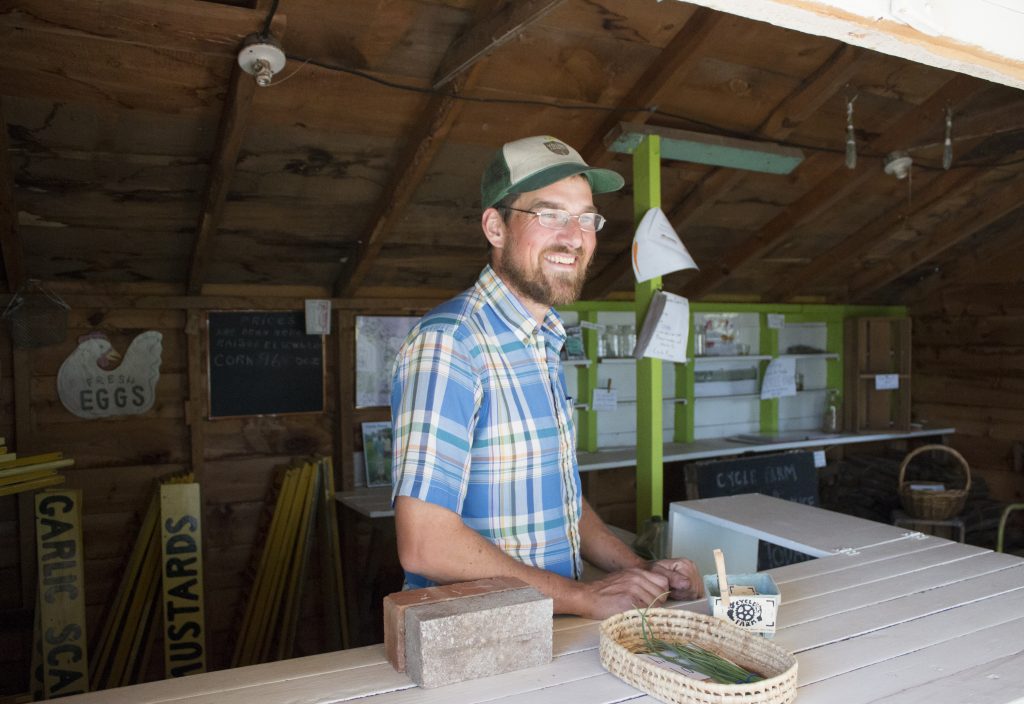
Jeremy stands in the farm stand, which was originally built in the early 1900s and used as a stand for farmers who lived there prior to Jeremy and Trish.
Jeremy and Trish often invite people to their farm to teach them about what they’re doing and why.
“From the customer side there’s the benefit of knowing who your farmers are and how your food is grown and being able to come and interact with the farm,” said Trish.
There are monthly events at Cycle Farm to showcase to the community what is happening on the farm.
“We try and do a lot of events on the farm to encourage families or people in town to come see the farm, have conversations about the broader community and how we’re doing as a community at stewarding agricultural land, or open space, or water issues or anything else. There’s this platform where people know the farm and know why those issues are important to us,” said Jeremy.
Jeremy and Trish have different initiatives that they are always excited to share with visitors of the farm.
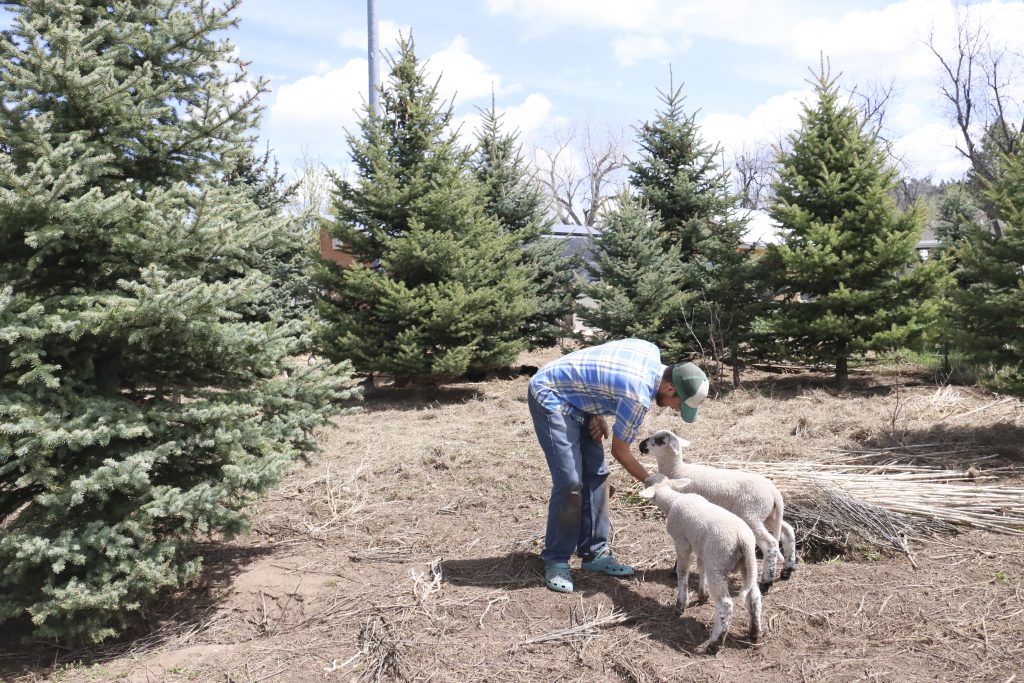
Jeremy with lambs on the farm
“We’re really excited about soil health. A lot of our management decisions are trying to improve soil health to help climate change and carbon sequestration. For the last two winters we have done the carbon budget for the farm and we’re pretty confident that we sequester more carbon in the soil than we produce through our production. The entirety of our vegetables is carbon negative or sequestering carbon,” said Jeremy.
Jeremy and Trish want people to understand the role soil health plays in our food, health and ecology.
“Food grown in healthier soil tends to have higher nutritional values, a wider range of vitamins and nutrients. The diversity side, or the ecologic side of soil health provides more habitat for a diverse group of species. There’s water retention and infiltration, so on a large scale better soil health is less runoff from rain storms and less impact from drought,” said Jeremy.
“Ultimately healthy soil builds a more resilient system all around,” added Trish.
Cycle Farm also has a pollinator initiative. At the entrance of their farm is a pollinator box. The box invites pollinators in by providing security and habitat. They also planted a pollinator garden in 2015 to encourage pollinators to visit their farm.
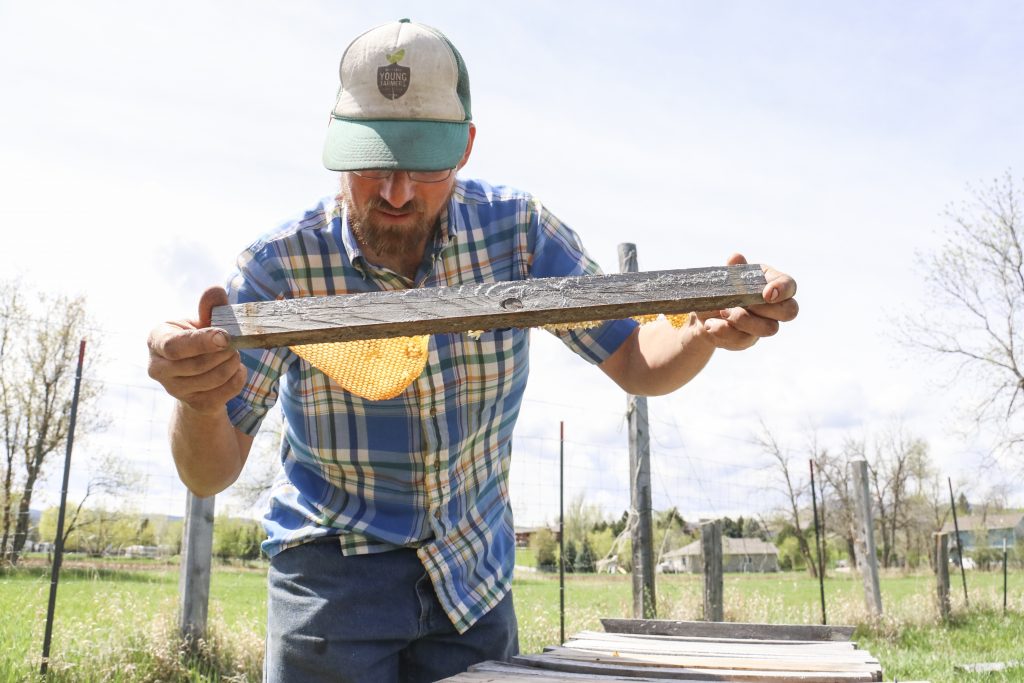
“Pollinators are so important, and the pollinator box we have at the front of the farm is really a tool of discussion we are using to talk to our community about not only the importance of pollinators, but also our management practices, land ethic and broader community issues,” said Jeremy.
Cycle Farm grows all their vegetables by seed, growing all open-pollinated varieties, and they have signed onto the Safe Seed Pledge vowing to never use genetically modified seeds.
Jeremy and Trish’s passion for wholesome local food systems and the environment make Cycle Farm a special operation.
A 2012 United States Department of Agriculture census determined in addition to the huge number of farmers retiring each year, fewer new farmers are starting operations. New farm operations dropped 23 percent from 2007 to 2012. Jeremy and Trish encourage people who are interested in agriculture to jump in.
“If you’re interested in agriculture, start in some fashion. Look for farms to volunteer at, start getting involved and see if it’s a good fit,” said Jeremy.
“For anyone who is interested in farming, get some experience, get involved and go do it,” said Trish.
